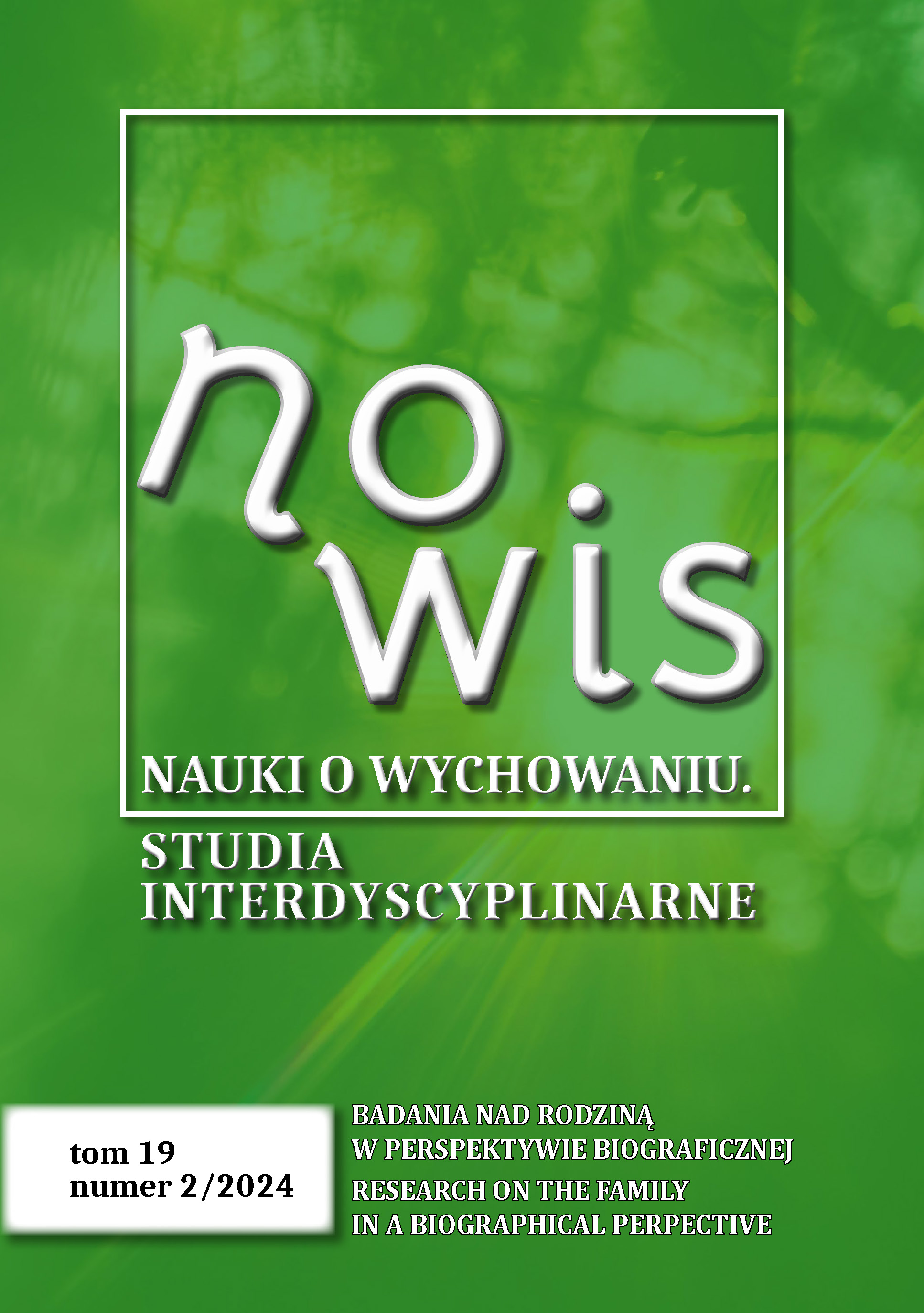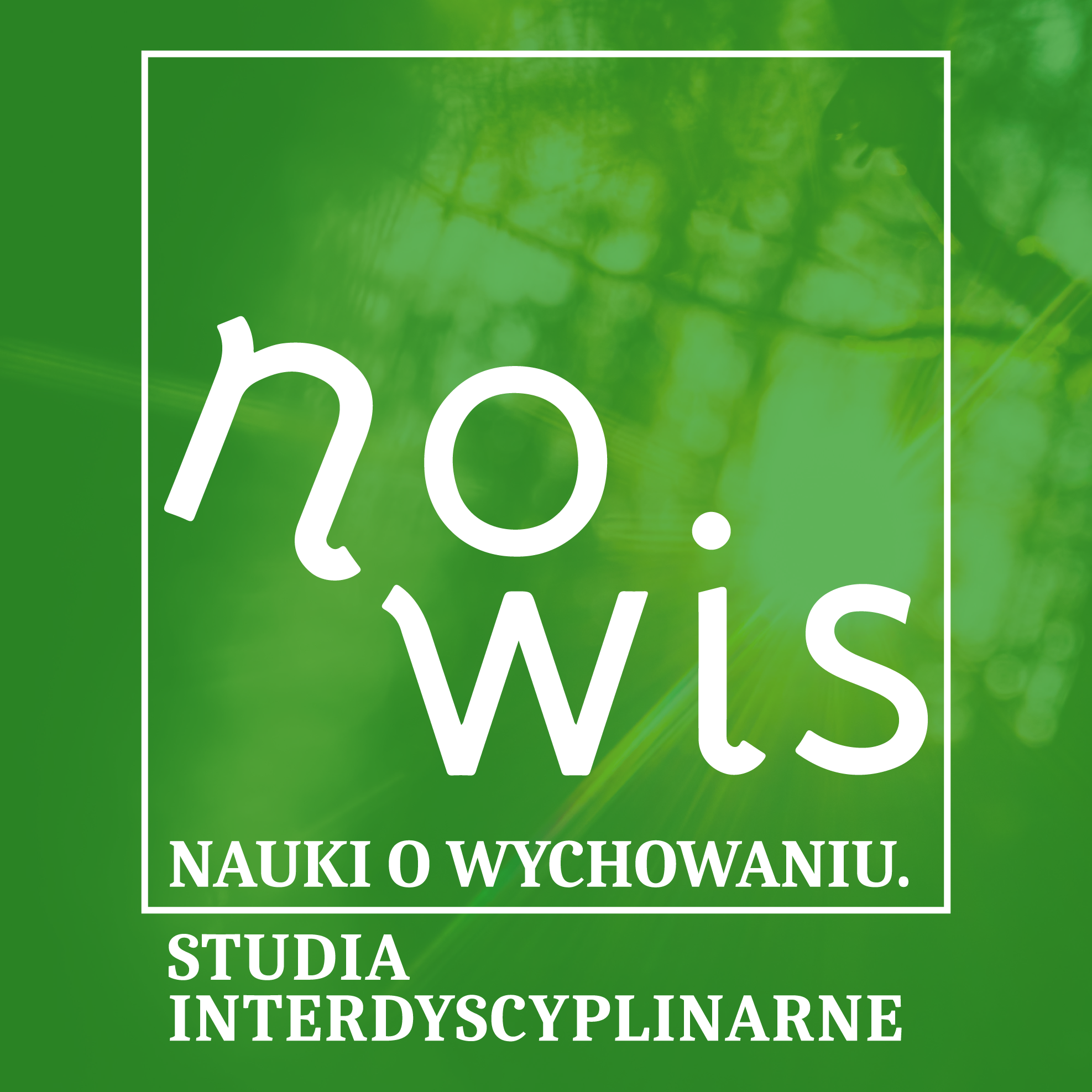Wczesne nauczanie języka francuskiego jako języka obcego: korzyści, metody i ogólne znaczenie
DOI:
https://doi.org/10.18778/2450-4491.19.14Słowa kluczowe:
nauczanie-nauka w młodym wieku, francuski jako język obcy (FLE), innowacyjne metody nauczania, kompetencje interkulturoweAbstrakt
Artykuł skupia się na wczesnym nauczaniu języka francuskiego jako języka obcego, opiera się na analizach doświadczeń, prowadzonych w wymiarze międzynarodowym. Omawia korzyści płynące z wczesnej nauki francuskiego, analizuje różne metody nauczania, określa wyzwania, jakie się z tym wiążą oraz przedstawia skuteczne strategie, umożliwiające ich wprowadzenie. Omówione studia przypadku i doświadczenia realizowane w różnych krajach podkreślają wagę tego podejścia w nauczaniu języka francuskiego jako języka obcego.
Bibliografia
Acar A. (2020) The Implementation of the Action-Oriented Approach in Language Textbooks, „Travaux de didactique du français langue étrangère et seconde”, n° 10(3), pp. 864–880,
Google Scholar
DOI: https://doi.org/10.24315/tred.656990
Alpar M. (2010) La nécessité et l’importance de l’enseignement/apprentissage précoce du français langue étrangère en Turquie, „Synergies Turquie”, n° 3, pp. 173_179,https://gerflint.fr/Base/Turquie3/melek_alpar.pdf (consulté : 9.09.2024).
Google Scholar
Benmoussa A., Bouhadiba F., Berrahal A. (2014) L’enseignement du français langue étrangère en contexte bilingue : le cas de l’Algérie, „Synergies Algérie”, n° 19, pp. 59–72.
Google Scholar
Bérard E. (1991) L’approche communicative : repères théoriques, Paris, Hachette.
Google Scholar
Bialystok E. (2009) Bilingualism: The Good, the Bad, and the Indifferent, „Bilingualism: Language and Cognition”, n° 12(1), pp. 3–11.
Google Scholar
DOI: https://doi.org/10.1017/S1366728908003477
Billerey B., Borowska B. (2019) Correction de la prononciation de la voyelle [œ] en français selon la méthode verbo-tonale – proposition d’activités pour les apprenants et les enseignants polonais dans l’éducation précoce in: Pedagogika wczesnoszkolna w Polsce i na świecie. Teoria i implikacje praktyczne, B. Borowska, M. Buk-Cegiełka (éd.), Lublin, Wydawnictwo KUL, pp. 43–64.
Google Scholar
Bower M., Howe C., McCredie N., Robinson A., Grover D. (2014) Augmented Reality in Education – Cases, Places and Potentials, „Educational Media International”, n° 51(1), pp. 1–15.
Google Scholar
DOI: https://doi.org/10.1080/09523987.2014.889400
Burston J. (2015) Twenty Years of MALL Project Implementation: A Meta-Analysis of Learning Outcomes, „ReCALL”, n° 27(1), pp. 4–20.
Google Scholar
DOI: https://doi.org/10.1017/S0958344014000159
Byram M. (1997) Teaching and Assessing Intercultural Communicative Competence, Clevedon, Multilingual Matters.
Google Scholar
Byram M. (2008) From Foreign Language Education to Education for Intercultural Citizenship: Essays and Reflections, Clevedon, Multilingual Matters.
Google Scholar
DOI: https://doi.org/10.21832/9781847690807
Cammarata L., Cavanagh M. O., Blain S., Sabatier Bullock C. (2018) Enseigner en immersion française au Canada : Synthèse des connaissances sur les défis et leurs implications pour la formation des enseignants, „The Canadian Modern Language Review”, n° 74(1), pp.101–127.
Google Scholar
DOI: https://doi.org/10.3138/cmlr.3889
Chiang T. H. C., Yang S. J. H., Hwang G. J. (2014) An Augmented Reality-Based Mobile Learning System to Improve Students’ Learning Achievements and Motivations in Natural Science Inquiry Activities, “Educational Technology & Society”, n° 17(4), pp. 352–365.
Google Scholar
Chopra R. (2016) Exploring the Impact of Interactive and Student-Centered Teaching Methods on FFL Learning in India, “Foreign Language Annals”, n° 49(2), pp. 300–317.
Google Scholar
Cummins J. (2000) Language, Power and Pedagogy: Bilingual Children in the Crossfire, Clevedon, Multilingual Matters.
Google Scholar
DOI: https://doi.org/10.21832/9781853596773
Deterding S., Dixon D., Khaled R., Nacke L. (2011) From Game Design Elements to Gamefulness: Defining ‘Gamification’ in: Proceedings of the 15th International Academic MindTrek Conference: Envisioning Future Media Environments, New York, NY, Association for Computing Machinery, https://dl.acm.org/doi/10.1145/2181037.2181040
Google Scholar
DOI: https://doi.org/10.1145/2181037.2181040
Dewaele J. M., Witney J., Saito K., Dewaele L. (2019) Foreign Language Enjoyment and Anxiety: The Effect of Teacher and Learner Variables, “Language Teaching Research”, n° 23(3), pp. 324–341.
Google Scholar
Diamond A., Lee K. (2011) Interventions Shown to Aid Executive Function Development in Children 4 to 12 Years Old, “Science”, n° 333(6045), pp. 959–964.
Google Scholar
DOI: https://doi.org/10.1126/science.1204529
Djemai N., Benmoussa H., Bouzidi A. (2015) L’utilisation des TIC dans l’enseignement du FLE : impact sur l’engagement des élèves et leurs performances, “Journal of Education and Training Studies”, n° 3(1), pp. 1–10.
Google Scholar
Gathercole S. E. (2006) Nonword Repetition and Word Learning: The Nature of the Relationship, “Applied Psycholinguistics”, n° 27(4), pp. 513–543.
Google Scholar
DOI: https://doi.org/10.1017/S0142716406060383
Genesee F. (2006) What do We Know about Bilingual Education for Majority‐Language Students? in: The Handbook of Bilingualism, T. K. Bhatia, W. C. Ritchie (éds.), Oxford, Blackwell Publishing Ltd., pp. 249–256.
Google Scholar
DOI: https://doi.org/10.1002/9780470756997.ch21
Germain C., Netten J. (2013) Integrating Language and Content: Lessons from Immersion, “Modern Language Journal”, n° 97(S1), pp. 58–75.
Google Scholar
Godwin-Jones R. (2014) Emerging Technologies: Games in Language Learning: Opportunities and Challenges, “Language Learning & Technology”, n° 18(2), pp. 9–19.
Google Scholar
Hamilton J., Feldman J. (2014) Planning a Program Evaluation: Matching Methodology to Program Status in: Handbook of Research on Educational Communications and -Technology, J. M. Spector, M. D. Merrill, J. Elen, M. J. Bishop (éds.), New York, NY, Springer, pp. 249–256.
Google Scholar
DOI: https://doi.org/10.1007/978-1-4614-3185-5_20
Hernández T. A. (2010) The Relationship among Motivation, Interaction, and the Development of Second Language oral Proficiency in a Study-Abroad Context, “The Modern Language Journal”, n° 94(4), pp. 600–617.
Google Scholar
DOI: https://doi.org/10.1111/j.1540-4781.2010.01053.x
Howard-Jones P. (2014) Neuroscience and Education: A Review of Educational Interventions and Approaches Informed by Neuroscience, London, Education Endowment Foundation.
Google Scholar
Huang R. H., Soman, D. (2020) A Practitioner’s Guide to Gamification of Education, Research Report Series: Behavioural Economics in Action, Toronto, Rotman School of Management, University of Toronto.
Google Scholar
Immordino-Yang M. H., Damasio A. (2007) We Feel, Therefore We Learn: The Relevance of Affective and Social Neuroscience to Education, “Mind, Brain, and Education”, n° 1(1), pp. 3–10.
Google Scholar
DOI: https://doi.org/10.1111/j.1751-228X.2007.00004.x
Jankowski K. (2017) L’intégration des TIC dans l’enseignement précoce du FLE en Pologne, „Innovations Pédagogiques en Langues Étrangères”, n° 22(1), pp. 15–29.
Google Scholar
Jessner U. (2008) A DST Model of Multilingualism and the Role of Metalinguistic Awareness, “The Modern Language Journal”, n° 92(2), pp. 270–283.
Google Scholar
DOI: https://doi.org/10.1111/j.1540-4781.2008.00718.x
Kapp K. M. (2012) The Gamification of Learning and Instruction : Game-Based Methods and Strategies for Training and Education, San Francisco, CA, Pfeiffer.
Google Scholar
DOI: https://doi.org/10.1145/2207270.2211316
Kim S., Song K., Lockee B., Burton J. (2018) Gamification in Learning and Education : Enjoy Learning Like Gaming, Cham, Switzerland Springer International Publishing.
Google Scholar
DOI: https://doi.org/10.1007/978-3-319-47283-6
Kramsch C. (1998) Language and Culture, Oxford, Oxford University Press.
Google Scholar
Lambert W. E., Tucker G. R. (1972) Bilingual Education of Children: The St. Lambert Experiment, Rowley, MA, Newbury House.
Google Scholar
Marinova-Todd S. H., Marshall D. B., Snow C. E. (2000) Three Misconceptions About Age and L2 Learning, “TESOL Quarterly”, n° 34(1), pp. 9–34.
Google Scholar
DOI: https://doi.org/10.2307/3588095
Mehta A., Sengupta A. (2017) L’impact des programmes d’échange culturel et linguistique sur l’apprentissage du français langue étrangère en Inde, „Journal of Language Teaching and Research”, n° 8(1), pp. 1–10.
Google Scholar
Pellerin M. (2014) Language Tasks Using Touch Screen and Mobile Technologies: Reconceptualizing Task-Based CALL for Young Language Learners. « Canadian Journal of Learning and Technology / La revue canadienne de l’apprentissage et de la technologie », n° 40(1), https://doi.org/10.21432/T2K01N
Google Scholar
DOI: https://doi.org/10.21432/T2K01N
Plass J. L., Pawar S. (2020) Adaptive and Personalized Learning in Educational Game Design, “Educational Psychologist”, n° 55(1), pp. 54-68.
Google Scholar
Poncelet M., Gillet S. (2017) Les aspects cognitifs et psycholinguistiques de l’apprentissage des langues en immersion précoce, „Éduquer”, n° 157, pp. 27–38.
Google Scholar
Puren C. (2009) Histoire des méthodologies de l’enseignement des langues, Paris, Presses universitaires de France.
Google Scholar
Richards J. C., Rodgers T. S. (2014) Approaches and Methods in Language Teaching, Cambridge, Cambridge University Press.
Google Scholar
DOI: https://doi.org/10.1017/9781009024532
Singh M. (2018) Les défis de l’apprentissage du français langue étrangère en Inde, “International Journal of Research Studies in Education”, n° 7(2), pp. 1–10.
Google Scholar
Statistique Canada (2016) Enrollment in French Immersion Programs in Canada, Enquête sur les langues officielles au Canada, Gouvernement du Canada.
Google Scholar
Swain M., Lapkin S. (2005) Développement de la compétence interculturelle chez les élèves en immersion, „The Modern Language Journal”, n° 89(4), pp. 586–611.
Google Scholar
Tagliante C. (2016) L’évaluation et le Cadre européen commun : techniques et pratiques de classe, Paris, CLE International.
Google Scholar
Taylor D., Pearson R., Hart W., Lambert M. (1990) L’immersion française au Canada : les effets à long terme, „The Modern Language Journal”, n° 74(2), pp. 125–134.
Google Scholar
Trust T., Whalen J. (2020) Should Teachers be Trained in Emergency Remote Teaching? Lessons Learned from the COVID-19 Pandemic, “Journal of Technology and Teacher Education”, n° 28(2), pp. 189–199.
Google Scholar
Turnbull M., Hart R., Lapkin S. (2003) L’expression orale en français des élèves en immersion : une étude longitudinale, „The Modern Language Journal”, n° 87(2), pp. 212–228.
Google Scholar
Wisniewska I. (2016) Perceptions et attitudes envers l’enseignement précoce du FLE en Pologne, „Études Polonaises sur l’Éducation”, n° 11(4), pp. 47–60.
Google Scholar
Yılmaz H. (2015) L’impact de l’enseignement précoce du français sur la prononciation et la grammaire des élèves de primaire en Turquie, „The Journal of Language Teaching and Research”, n° 6(1), pp. 1–12.
Google Scholar
Zosh J. M., Hirsh-Pasek K., Golinkoff R. M., Robb M. B., Hopkins E. J. (2018) Learning through Play: A Review of the Evidence (White Paper), The LEGO Foundation, Denmark.
Google Scholar
Conseil de l’Europe (2001) Cadre européen commun de référence pour les langues : apprendre, enseigner, évaluer, Unité des Politiques linguistiques, Strasbourg, https://rm.coe.int/16802fc3a8 (consulté : 9.09.2024).
Google Scholar
France Podcasts (2018) L’approche communicative en FLE, https://www.francepodcasts.com/2018/10/09/approche-communicative-en-fle/ (consulté : 04.08.2023).
Google Scholar
Hamari J., Koivisto J., Sarsa H. (2014) Does Gamification Work? – A Literature Review of Empirical Studies on Gamification, 47th Hawaii International Conference on System Sciences, Institute of Electrical and Electronics Engineers, https://ieeexplore.ieee.org/document/6758978/citations#citations (consulté : 9.09.2024).
Google Scholar
DOI: https://doi.org/10.1109/HICSS.2014.377
Language Policy Division, Strasbourg Ministry of National Education, Poland 2005–2007 (2007) Language Education Policy Profile : Poland, https://rm.coe.int/language-education-policy-profile-poland/16807b3c35 (consulté : 9.09.2024).
Google Scholar
Organisation internationale de la Francophonie (OIF) (2023) „Statistiques sur la francophonie mondiale”, https://www.francophonie.org/sites/default/files/2022-03/Synthese_La_langue_francaise_dans_le_monde_2022.pdf (consulté : 23.12.2023).
Google Scholar
Pane J. F., Steiner E. D., Baird M. D., Hamilton L. S., Pane J. D. (2017) Informing Progress: Insights on Personalized Learning Implementation and Effects, RAND Corporation, https://www.rand.org/pubs/research_reports/RR2042.html (consulté : 12.06.2023).
Google Scholar
DOI: https://doi.org/10.7249/RR2042
Vesselinov R., Grego J. (2012) Duolingo Effectiveness Study, City University of New York, https://www.languagezen.com/pt/about/english/Duolingo_Efficacy_Study.pdf (consulté : 04.11.2023).
Google Scholar






 Strona czasopisma, prowadzona przez Zespół redakcyjny NOWiS na platformie Index Copernicus:
Strona czasopisma, prowadzona przez Zespół redakcyjny NOWiS na platformie Index Copernicus: 





